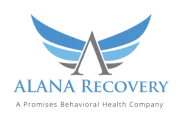It’s not always easy to notice when drinking has crossed the line from social enjoyment to a more harmful pattern. For some, it begins with using alcohol to cope with stress or unwind after a long day. Over time, it can spiral into a habit that disrupts relationships, health, and daily life. If you or a loved one is struggling, our alcohol rehab program in Georgia could be the next step toward reclaiming control. At ALANA Recovery, we’re here to help guide you on this journey. Call 770.759.7474 to learn more.
Behavioral Signs of Alcohol Abuse
Alcohol abuse often manifests in noticeable behavioral changes. These can include neglecting personal or professional responsibilities, missing important commitments, or withdrawing from friends and family. People may start prioritizing drinking over other activities, avoiding social events that don’t involve alcohol, or creating excuses for their behavior. For example, someone might say they’re “too tired” to attend a family gathering when, in reality, they want to stay home and drink.
Other behavioral signs include:
- Increased tolerance – Needing more alcohol to achieve the same effects
- Loss of control – Drinking more or longer than intended
- Avoidance – Making excuses to skip activities that don’t involve drinking
For many, these patterns might seem subtle at first, but over time, they can disrupt routines and relationships, leaving people feeling isolated.
Physical Effects of Excessive Drinking
Beyond behavior, alcohol abuse can leave a physical mark on the body. Persistent hangovers, poor sleep quality, and noticeable changes in personal hygiene or appearance are common warning signs. People may also experience physical symptoms like shakiness, redness in the face, or unexplained fatigue. Over time, these physical effects can worsen, leading to chronic health conditions like liver damage or digestive issues.
It’s important to ask yourself: Are these physical changes starting to interfere with everyday life? Are they causing discomfort or embarrassment? Even small symptoms, like forgetting meals or neglecting self-care, can signal a growing issue that may need attention.
The Mental and Emotional Toll
Alcohol doesn’t only affect the body—it has profound effects on mental health. Irritability, mood swings, and persistent anxiety often emerge as alcohol use increases. Many people turn to alcohol as a way to escape overwhelming stress, but instead of relief, they often find themselves trapped in a cycle of heightened emotional distress.
Alcohol may seem like a quick fix for emotional pain, but it can worsen feelings of sadness or loneliness over time. Those in treatment often share stories of how alcohol use strained relationships or caused them to feel disconnected from others. Questions like, “Why can’t I stop?” or “What’s wrong with me?” are common among people dealing with alcohol abuse, reinforcing the need for both emotional and professional support.
How to Move Forward
When drinking begins to negatively impact physical health, emotional well-being, or daily life, it’s a clear signal that change is needed. Taking small, actionable steps can create momentum for recovery. Seeking professional care, attending support groups, or opening up to a trusted friend are powerful ways to begin addressing alcohol abuse.
It’s helpful to reflect on personal goals: What kind of life would feel more fulfilling? How would your relationships improve without the burden of alcohol? Small changes, like replacing a nightly drink with a calming activity or journaling to process emotions, can lay the groundwork for bigger transformations.
Reach Out to ALANA Recovery Today
You don’t have to face alcohol abuse alone. At ALANA Recovery, we offer compassionate, evidence-based treatment to help you or your loved one take the next step toward healing. Call 770.759.7474 or reach out online to learn how alcohol rehab in Georgia can support you on your recovery journey.

